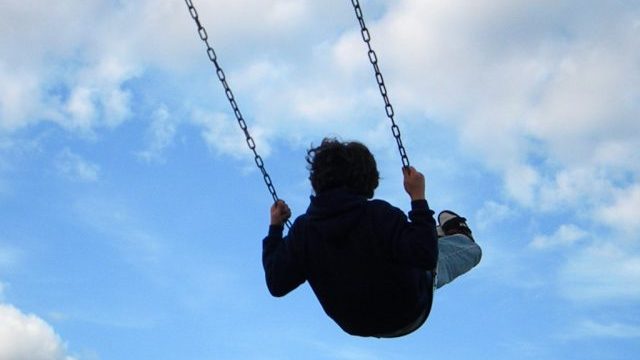
Schooling healthy minds: Educating children about mental health
In the age of the Tiger Mother and Dolphins and Jellyfish parenting styles, parents are warned of the psychological and emotional effects of their influence. Whether it is being too authoritative and pushing too hard, or too permissive and not pushing hard enough, parents face the struggle of finding a way to educate their children to live happy and healthy lives. With the increase in awareness about mental health and a reduction in the stigma associated with getting help, there have been some initiatives aimed at educating children and adolescents about mental health in schools. Facilitated by schools, teachers can help teach children social and emotional skills to help them cope with stress and to assist in preventing mental illness in adult life.
There are many benefits to initiating prevention and intervention programmes. A 2015 study (Schonert-Reichl, Oberle, Molly Lawlor, Abbott, Thomson, Oberlander & Diamond) examined the cognitive and social–emotional effects of a mindfulness programme on elementary school children. This study drew on the understanding that it is:
increasingly being recognized that effective education includes practices that bolster students’ social–emotional competencies in tandem with their academic knowledge… The reality is that today’s schools are facing increased pressure to improve academic performance, while also giving attention to children’s social–emotional needs…
Mental health programmes such as mindfulness courses optimize learning, help build resilience to overcome learning challenges and enrich students’ relationships with each other, staff and others.
Researchers conducted a non-randomised controlled feasibility study on the effectiveness of the Mindfulness in School Programme (Kuyken, Weare, Ukoumunne, Vicary, Motton, Burnett, Cullen, Henelly & Huppert, 2013). The study involved 522 secondary school adolescents aged 12-16. The results found that participants in the programme “reported fewer depressive symptoms” and “lower stress… and greater well-being” after treatment and at follow up (Kuyken et. al). Participants that practiced mindfulness techniques to a greater degree were linked to better mental health. This is significant as the study notes that “low-grade depressive symptoms not only impair functioning but are also a powerful risk factor for depression in adolescents and adults” (Kuyken et. al). This study was the first study regarding a mindfulness programme that is aimed at addressing risk factors for depression in adolescents. Additionally, the findings suggested that it may be possible to prevent the onset of depression.
Other intervention programmes like the 2015 study by Schonert-Reichl et. al have been targeted at younger children in schools. Another study examined the effectiveness of a school-based mindfulness training as a programme to prevent stress in elementary school children (van de Weijer-Bergsma, Langenberg, Brandsma, Oort & Bögel, 2012). Researchers argued for mental health programmes for young children as “childhood may be a crucial period for such prevention programmes, since the association between stressors and anxiety is stronger for children than for adolescents” (van de Weijer-Bergsma et. al). Results were also encouraging though the researchers noted that the effects were more evident over time, suggesting that children needed time to strengthen mindfulness skills. This study also sheds light on the effect of the mindfulness training on teachers who were taught by trainers. Though the number of teachers was too small to conduct a significance test, it was noted that teachers could also benefit from the training by becoming more aware of their own methods of coping with stress. The teachers did however face challenges when attempting to continue incorporating mindfulness lessons into regular teaching after the sessions with the trainers ended. Regular support for these programmes is thus important in investing in the mental health of both students and staff.
There are increasing concerns about helicopter parents that are involved in their childrens’ lives so much that they stunt their childrens’ ability to grow the necessary skills to take on more responsibility. This may also be linked to the new breed of young adults, the “teacups” and “crispies”, that make it to college, as Debra Ollivier discusses in The Huffington Post. Ollivier quotes Mogel: “Teacups are so fragile that they are easily broken by the knocks of college life. Crispies are so burned out that they are too brittle to enjoy anything. An increasing number are actually returning home after first semester, unable to cope.” Whether these students might have benefited from earlier intervention is difficult to prove with certainty though research suggests that mindfulness skills practised over time continues to show effects at follow up (Kuyken et. al, 2013; van de Weijer-Bergsma et. al, 2012). What is evident is that schools should definitely consider embedding mental health education into the curriculum as there are promising results from research to back up the potential benefits to not only students but the relationships that they have with staff, peers and family.
Aside from mindfulness skills, wellbeing and resilience programmes such as Bounce Back! have been utilised by teachers to help students develop healthy ways of thinking and relating to others. Teaching children and adolescents how to cope with life’s challenges is a sustainable strategy for preventing mental illness and promoting positive attitudes to learning. For those students who are already struggling or predisposed to mental health problems, they can also benefit from being able to seek help in a supportive environment.
Image source: let me fly! by my camera and me is licensed by CC BY-SA 2.0.
References:
Kuyken, W., Weare, K., Ukoumunne, O.C., Vicary, R., Motton, N., Burnett, R., Cullen, C., Hennelly, S. & Huppert, F. (2013). Effectiveness of the Mindfulness in Schools Programme: non-randomised controlled feasibility study. The British Journal of Psychiatry, 203, 126-131.
Schonert-Reichl, K. A., Oberle, E., Lawlor, M. S., Abbott, D., Thomson, K., Oberlander, T. F., & Diamond, A. (2015). Enhancing Cognitive and Social–Emotional Development Through a Simple-to-Administer Mindfulness-Based School Program for Elementary School Children: A Randomized Controlled Trial. Developmental Psychology, 51(1), 52–66.
van de Weijer-Bergsma, E., Langenberg, G., Brandsma, R., Oort, F.J. & Bögels, S.M. (2014). The Effectiveness of a School-Based Mindfulness Training as a Program to Prevent Stress in Elementary School Children. Mindfulness, 5, 238-248.
Also published on Medium.






